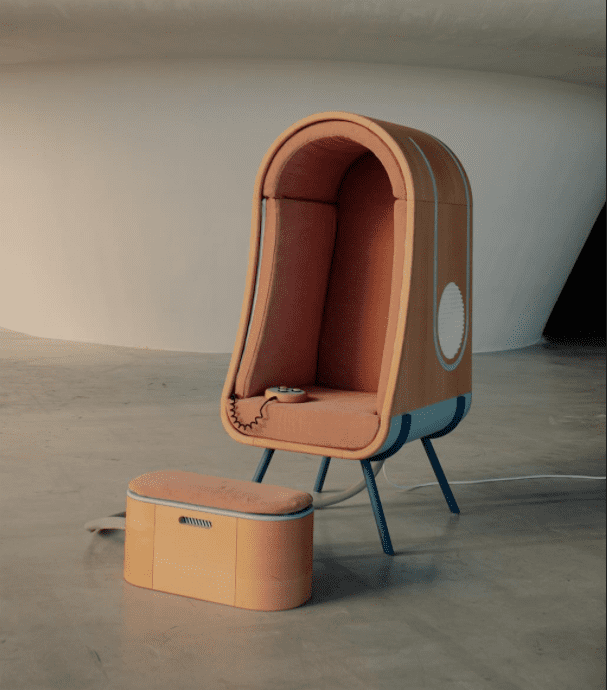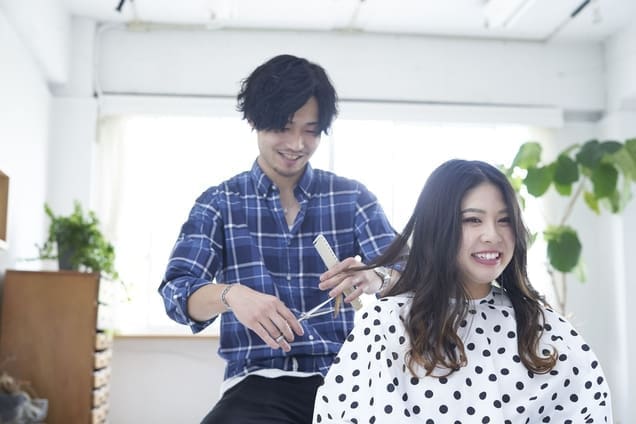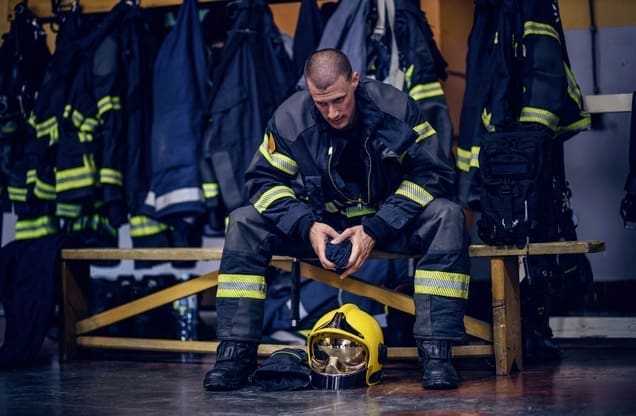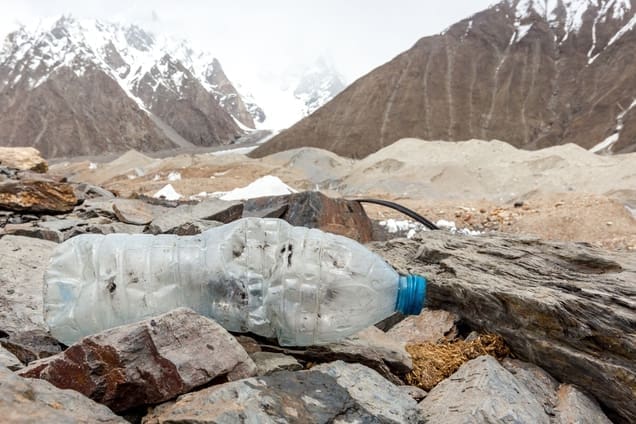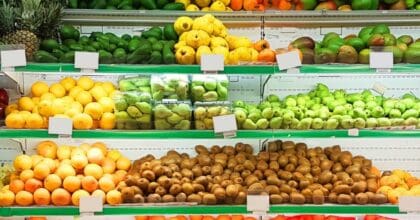Hotspots bring you the Mintel Trends team’s top observations on product and service launches from around the world. From a chair that hugs people who have autism to a community platform that connects skilled neighbors, check out the most innovative global initiatives happening this month.
Hugging Chair – France
French graduate designer Alexia Audrain has developed a chair that hugs people who have autism. The chair, called ‘The Oto,” is shaped like a cocoon with inflatable walls operated via remote control or tablet. This provides users with a hugging-like sensation that helps those with autism when experiencing sensory overload. The Oto won the 2021 James Dyson Award and has been tested in the child psychiatry centre of the University Hospital of Tours in France. Audrain aims to trial five chairs in various settings and commercialise the design next year.
Brands are innovating through designs and features that make products and services more accessible to those with disabilities and impairments. From making public spaces easier for the disabled to navigate to installing greater accessibility features into technology hardware, brands are serving demographics that can often be overlooked and under-served. This empowers disadvantaged consumers to enjoy products that they previously wouldn’t have access to and live more independent lifestyles. Brands are also developing specific skin, hair and fashion products to serve certain communities, such as those suffering from diseases or those from certain ethnic backgrounds, further aligning with consumer identities.
Tali Ramsey – Trends Analyst, EMEA
The Service Next Door – Thailand
Property developer AP Thai creates a community platform to connect skilled neighbours with those who need them. AP Thai’s ‘Neighbor Service’ platform is like a combination of Tinder and Fastwork, where consumers can log on to search for help from people within their proximity. Created for the community in a time of increased isolation and closures of various service centres, AP Thai’s ‘Neighbor Service’ initiative aims to bring communities closer and simplify the ‘Next Door Economy’ model. They put it simply: “You need something that someone near you can easily provide, and you have something that he needs or could very much use.”
Especially in urban settings, many people keep to themselves and do not know their neighbours very well, even in the best of times (without a global pandemic). The pandemic has put many skilled people out of a job and has kept them at home without income, leaving many with a sense of hopelessness. Furthermore, other groups of people, like the elderly who live alone, are disadvantaged in their access to services and assistance they might need. AP Thai believes there are many skills from the community that can be tapped into, and that the Neighbor Service can help return a bit of livelihood, purpose and hope to those affected by the pandemic.
Joey Khong – Trends Analyst, SEA
Home Sweet Etsy – US
Etsy debuted a virtual, augmented reality home that can be toured online and incorporates various shoppable Etsy products. The virtual home is already in holiday mode and features various elements of holiday décor. The home is shoppable and individuals can hover over a specific item to get more details and a link to purchase. The virtual house was created in partnership with The Boundary, a creative visualization studio.
The pandemic accelerated online shopping, but it also created a need to make online shopping more than a static screen. Virtual reality is aiming to fill that need by creating immersive experiences that blend inspiration with convenience. For marketplaces like Etsy, which have always existed in an online format, the increased interest in virtual reality creates room for online retailers to display products in a new format.
Diana Kelter – Associate Director of Consumer Trends, North America
A Flame-grilled Homage – Colombia
Burger King Colombia pays homage to local firefighters with a new campaign called “Fire and Grill Experts.” The new campaign highlights Burger King’s years of experience in grilling as the reason it has become a sponsor of local firefighters – other experts when it comes to fire and flames, albeit in a different way. The sponsorship sees the restaurant offering its classic Whopper Burger free of charge to all firefighters who patronize the chain.
In Colombia, as in other countries in Latin America, firefighting is done by volunteers. Despite having all the required qualifications and training, firefighters do their work voluntarily and at minimum wage. In many cases, crews are maintained by contributions from the community as local government assistance is minimal. As we have seen, there are many campaigns to donate money to firefighting institutions, and companies that make small but meaningful gestures such as offering them free food are directly recognizing their work and efforts for the community. This type of action has peaked during the pandemic when many brands supported essential workers on the frontline by giving them free products and services to support the community when it was needed most.
Dana Macke – Director of Trends, Americas
Plastic Snow Mountain – China
In collaboration with NGO Green River, OMO launched an initiative ‘Protect Sanjiangyuan for a Clean Future’ (守护三江源,共创洁净未来) to promote its innovative eco-friendly laundry products and advocate green lifestyles. NGO volunteers built a ‘snow mountain’ made of discarded plastic bottles they picked up in Sanjiangyuan – the region which contains the headwaters of three great rivers of Asia: the Yellow, the Yangtze and the Mekong. Artist Zha Songgang was invited to replicate the ‘snow mountain’, which was exhibited in Shanghai. The newly launched laundry products feature recyclable packaging and low carbon footprints. OMO aimed to achieve 30,000 tonnes of plastic recycling in China in the next three years.
Even though people know that plastic pollution is damaging the environment, it is hard to become aware of how it might affect their daily lives until they see it. The artistically designed ‘snow mountain’ provides consumers with a strong visual impact by turning plastic bottles that are considered as garbage into pure snow mountains and then provoke thinking on sustainability. While there is an increasing number of eco-friendly products launched in the marketplace with the greater eco-consciousness among the public, it is worth placing a great deal of importance on educating consumers on buying sustainably. OMO’s campaign is a good example that catches eyes and allows consumers to draw the connection between their consumption behaviours and environmental sustainability.
Victoria Li – Trends Analyst, APAC












